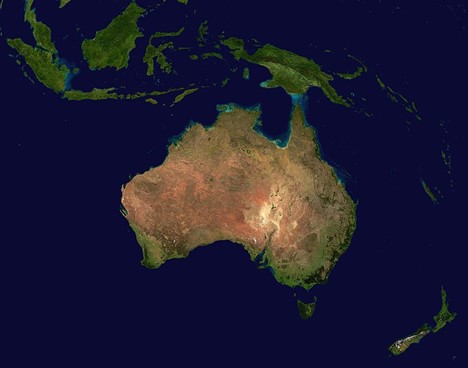Since its independence, the United States has maintained some manner of presence within the Indo-Pacific region. Throughout various administrations, the Indo-Pacific has had a place in the development of American foreign policy; however, the order of importance has fluctuated. The Biden administration has laid out strategic areas of focus in which the U.S. will engage. The focus of promoting and maintaining a “Free and Open Indo-Pacific” (FOIP) is just one of the administration’s strategies to maintain U.S. influence in the region. Currently, it serves as a primary framework for policy development and decisions. The U.S., however, must improve the FOIP initiative by providing clarity as to what it really is and take action to increase cooperation on a variety of issues with Indo-Pacific states.
Despite having a general direction through FOIP as to how the U.S. should engage with countries in the Indo-Pacific, a significant amount of ambiguity still needs to be clarified. This is especially true with member states of the Association of Southeast Nations (ASEAN). This ambiguity stems from the misconception that FOIP serves as a premise to solely counterbalance China’s influence in the region, especially given that the U.S. position towards China has hardened over the sovereignty of Taiwan and the South China Sea in recent years.
FOIP may be perceived as a method of containment rather than a genuine method of promoting freedom and openness in the region. Hence, ASEAN members hesitate to incorporate the concept into their policy framework. Due to this, the members adopt hedging strategies to avoid taking the side of the U.S. or China and risk their neutrality on topics of interest such as trade and security. For example, Malaysia considers China one of its largest trading partners. They would be loath to take part in an initiative that could compromise their trade relations with the second-largest economy in the world, which also happens to be a neighboring state. As such, the neglect of economic engagements under FOIP and the risk of stroking unnecessary tensions comes down to the broad definition of FOIP and the need for more clarity associated with it. Other non-ASEAN member states, such as South Korea, do not wish to fully entangle themselves in this great power struggle, even though they wish to lower reliance on Chinese imports.
Rhetoric by U.S. officials is insufficient to clarify FOIP in the minds of regional actors. It also comes down to policies enacted or showing genuine intent in regional development to support prosperity, not just to garner support against China. The U.S. needs to engage deliberately with Indo-Pacific nations on a bilateral basis before shifting to a multilateral basis, as this provides opportunities to work one-on-one on issues of trade, energy, and infrastructure development projects. Security-wise, the U.S. has worked excellently with Indo-Pacific countries through joint exercises, security agreements, and its commitment to maritime navigational rights.
The U.S. needs to have a more appealing and concrete economic strategy that provides access to American investments. Some options include deepening trade with ASEAN, specifically a free trade agreement with the organization directly or with individual member states, which would significantly increase foreign direct investment in those countries. Even working towards ensuring a secure and robust supply chain through cooperation with Indo-Pacific states provides the opportunity for trade and economic security through turbulent geopolitical situations.
The increasing significance of the Indo-Pacific in both the economic and security realms is undeniable. As such, the U.S. must exhibit sincere interest and steadfast commitment to Indo-Pacific countries and should not merely fall under the category of forming coalitions to counter China. Especially with ASEAN, member countries may find themselves more open to discussing the FOIP initiative without the risk of damaging their relations with China. The U.S. has the chance to collaborate with Indo-Pacific countries on issues on a bilateral or multilateral basis. However, to garner support for FOIP, there must be a clarified commitment by the U.S. The overall nature of U.S. engagement with these countries can be tied to their individual relationships with China, and the U.S. should consider this a factor when determining its approach with these countries.
Dharma Bhatt is an MA student in the International Security program at George Mason University. He currently holds a BS in Psychology from the University of Maryland – Baltimore County. While his focus is primarily on security matters in Europe and the Indo-Pacific, he has also taken an interest in intelligence, counter-terrorism, and military strategy. He also maintains a personal blog site known as “isecthoughts,” where he shares his opinions on matters about international relations. After graduation, Dharma hopes to pursue a career in national security and foreign affairs.
Photo can be found here.




